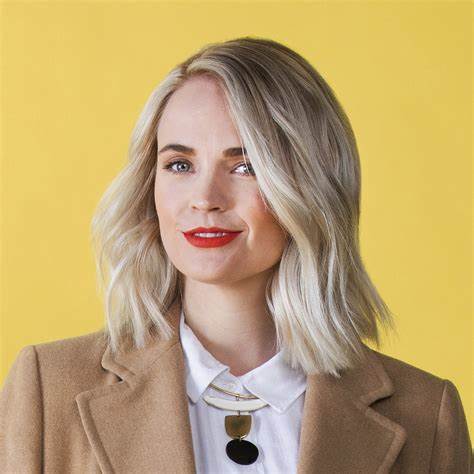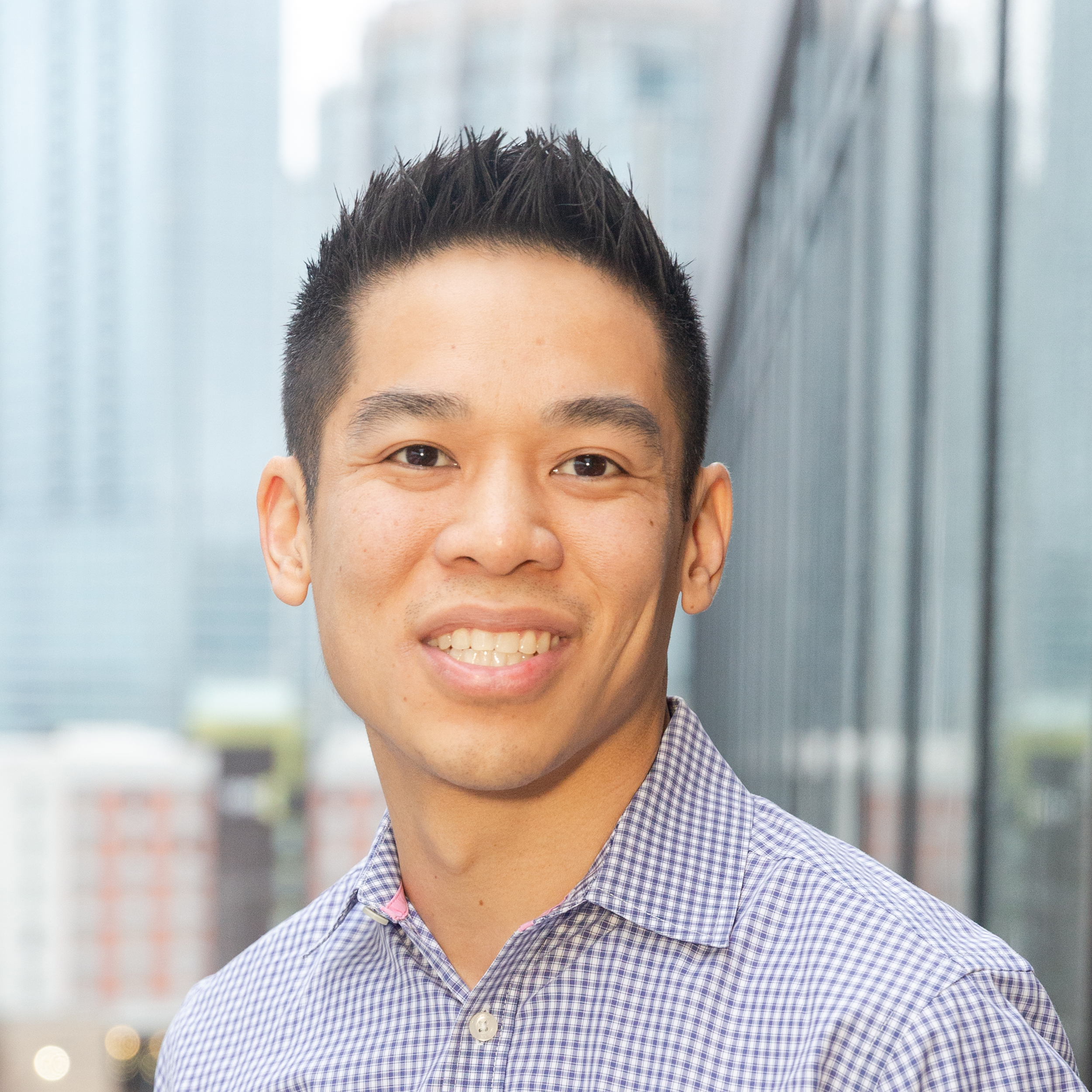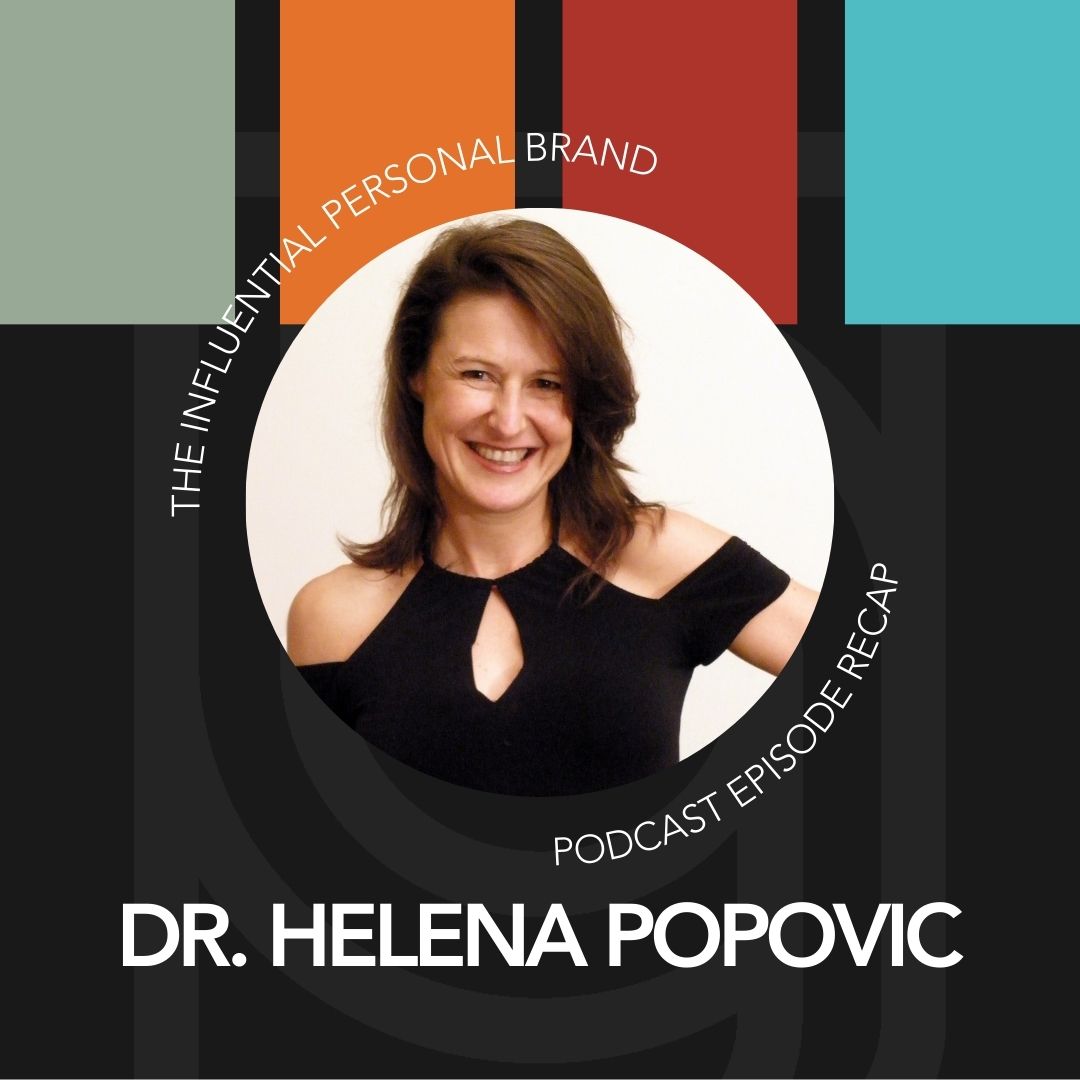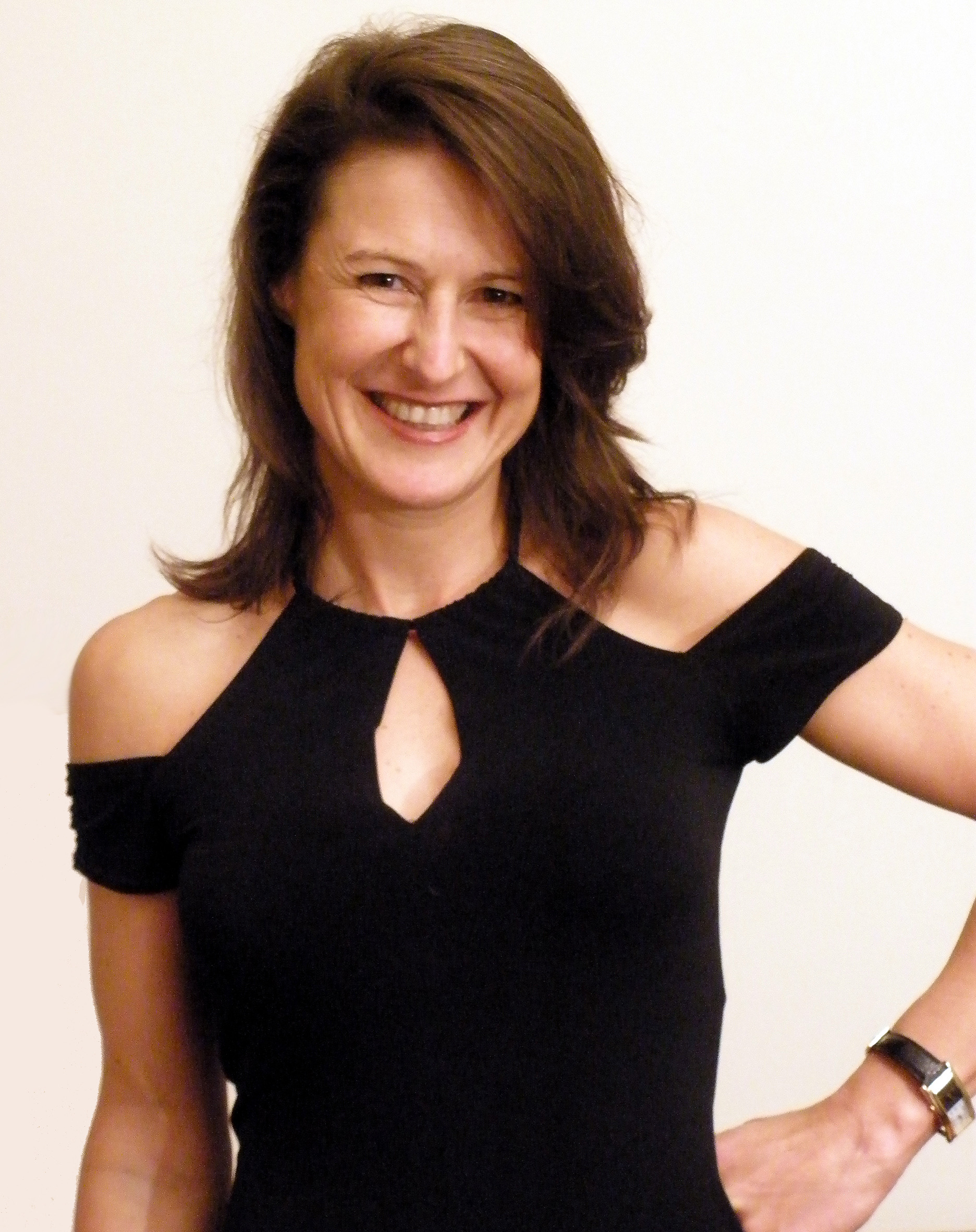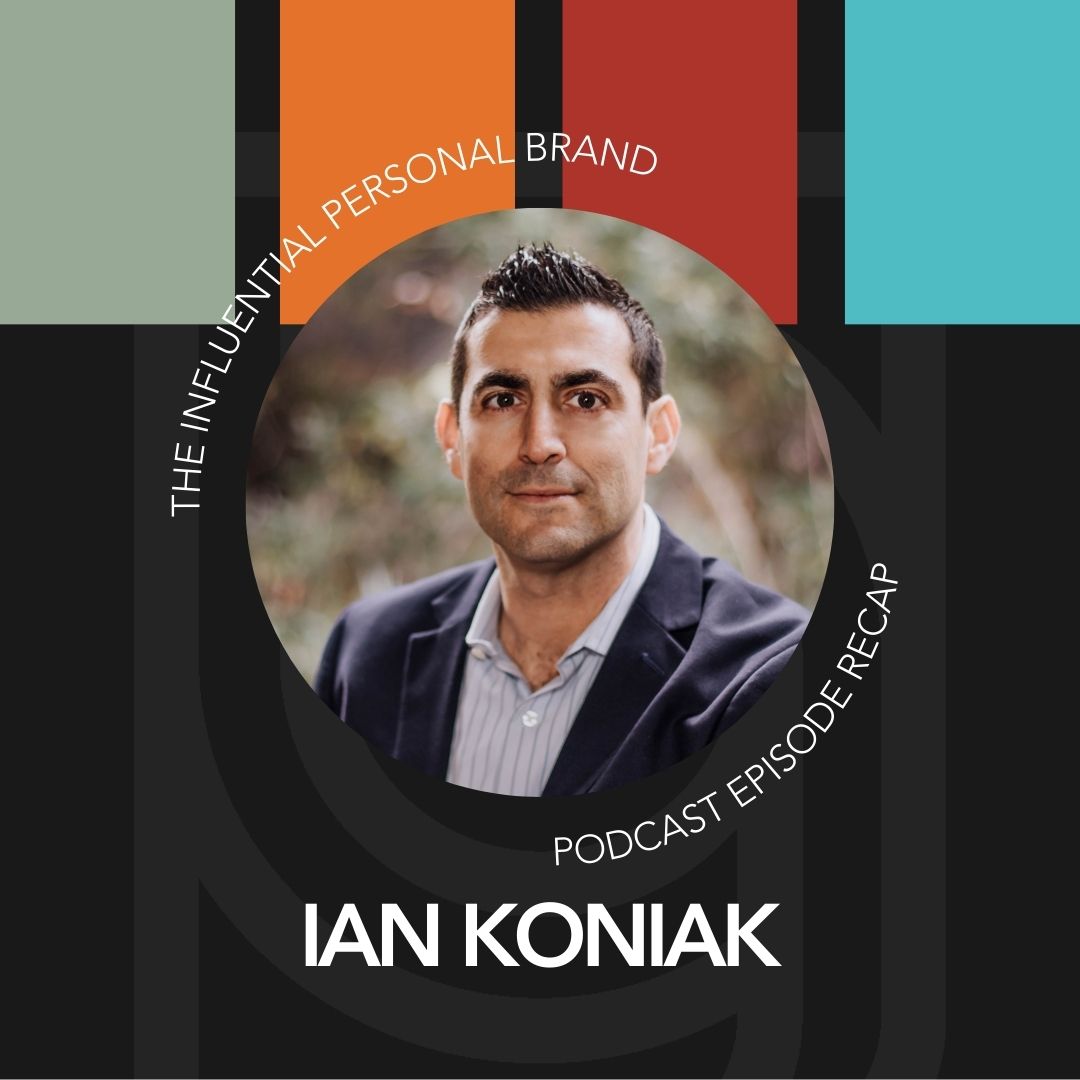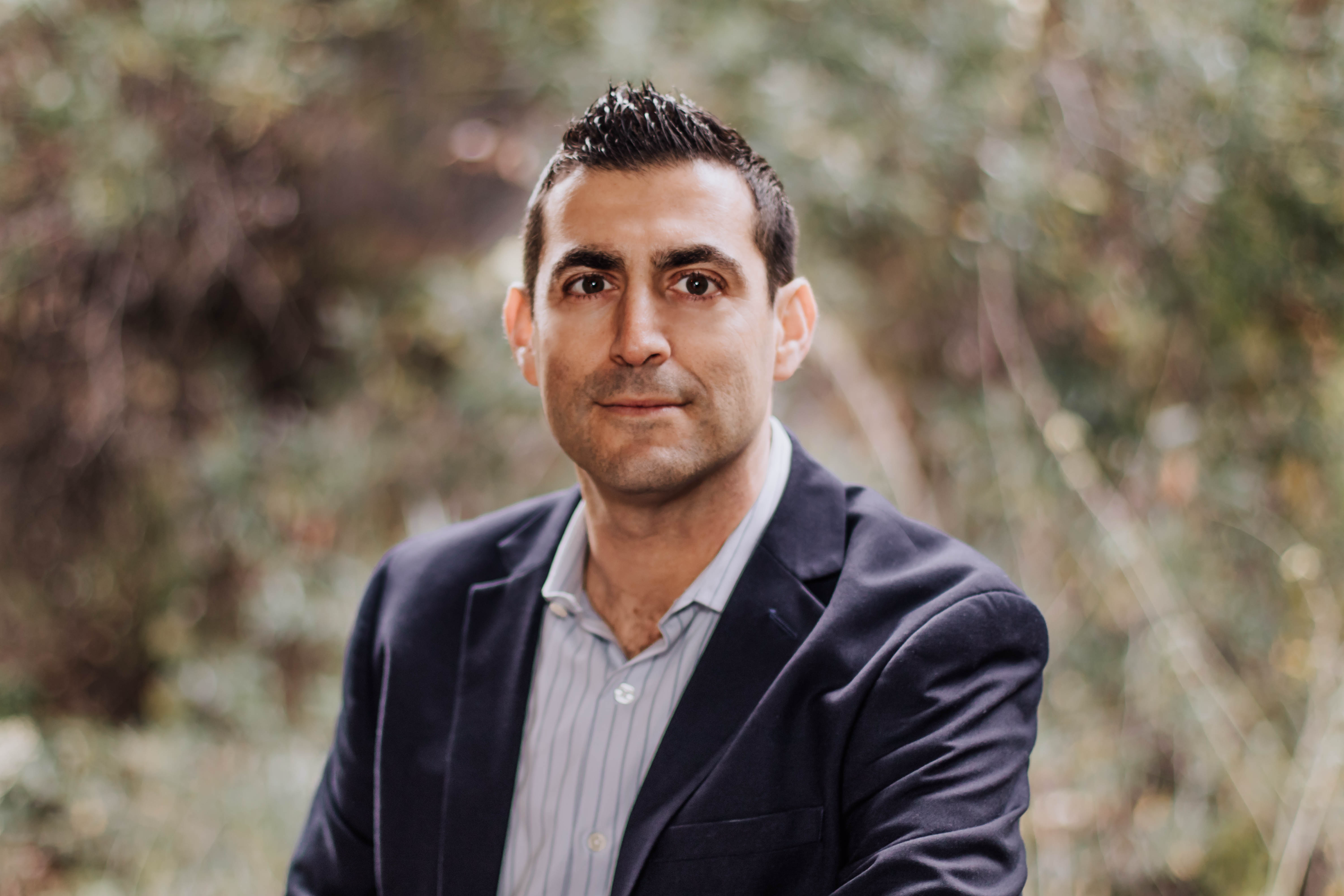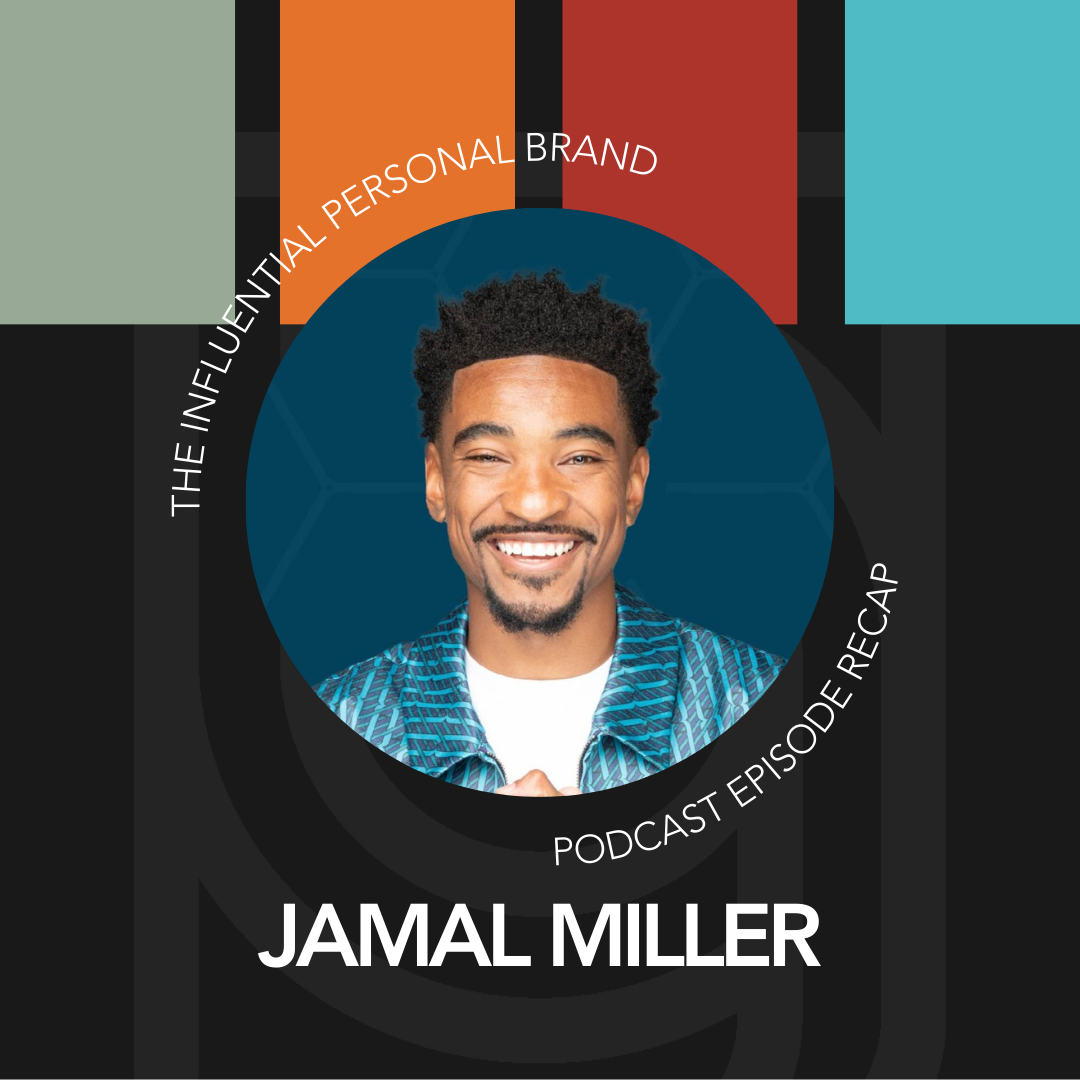Hey Brand Builder Rory Vaden here. Thank you so much for tuning in to listen to this interview. We are so excited to bring you this information and wanted to let you know that, Hey, there’s no sales pitch coming. From anything that we do with this is all our value add to you and the community. However, if you are somebody who is looking for specific strategies on how to build and monetize your personal brand, we would love to talk to you and we offer a free call to everyone that’s interested in getting to know us and is willing to give us a chance to get to know them and share a little bit about what we do. So if you’re interested in taking us up on a free strategy call, you can do that at brand builders, group.com/summit. Call brand builders, group.com/summit. Call. Hope to talk to you soon on with the show.
Now you all know when I bring someone on the show, it’s almost always somebody that is a personal connection. There is one other time when we had Kristen Giesa on to talk about television. And today I’m introducing you to a new friend, Liz Forkin Bohannon, who was a cold media outreach from her PR team to us. But you’ll see, there are lots of great reasons why we have had her on the show. She’s amazing. And we actually, I just realized she spoke at global leadership summit last year, which are some of our best friends. We love the global leadership network. I’m sure some of you listening probably saw me speak there. And some, I, my pal Jason Dorsey speak there last year, but anyways, Liz got a chance to speak there because she’s incredible. So she founded a company called Sseko Designs and it is an ethical fashion brand usethat has gone from literally like three women making sandals together under a mango tree in Uganda to this international fashion brand. That’s been featured in Vogue and O magazine and Marie Claire and in style and red book. And it provides employment and educational opportunities to and just like entrepreneurial training and education to women all in East Africa and across the globe. And you know, so Liz and the Sseko story had been featured on shark tank at good morning America and just lots of other places. And so anyways, we’re realizing we have all these connections and anyways, Liz, welcome to the show.
Thank you so much for having me Rory quite a, quite an honor to be one of two connection. So I’ll look forward to, you know, anytime after this will be considered personal connections from here on out, we ever connect a non-personal connection way. I love it. Yeah.
And I think, you know, you’re, I know that your real business is Sseko designed to, so I want to talk about, but like to that point for everyone listening you’ve done a great job of using your personal brand to build a real business. Like you, I get the sense that you are a true entrepreneur. You, you have your, you have your, you have your book beginner’s pluck, which y’all can check out. We’ll put links to that, but it’s like, what you really have used your personal brand to do is like forward your mission and your work as an entrepreneur. Is that accurate to say
Very correct. Yeah. I consider myself my day job. My, my main kind of mission in life right now is growing Seiko and Sseko is very much so a company that’s bigger than me that that works, that operates without me necessarily at the center, although my role is very much so kind of the face of the company and how my personal brand interacts with that is really important. But yeah, I’m not, I’m not a solo preneur. Like my goal is, is to build a scalable international company.
Yeah. And can you give us, so, so can you tell us a little bit about the story of Sseko? Cause I do want to hear about how you’ve used your personal brand to build it, but just like some reference in context to how this thing got started to it’s become, you know, this very recognized just almost like a social, like movement and the good work, like social conscious, like conscious company. And then when did it start where you at give us like a frame of like what, what the businesses is like,
Why don’t we start the thing long story short and it’s never super short. So I feel like I’m starting to lose credit.
I wouldn’t even preface it with that,
But, but 10 years ago I graduated from grad school with a degree in journalism and was really interested in issues that were facing women and girls living in extreme poverty and living in conflict and post-conflict zones. The only problem was I had zero experience living, working really actually understanding issues facing billions of women and girls across the globe. And so I graduated from grad school with all of this information and all of this kind of intellectual understanding and no context, no community, no relationships that were actually representative of that kind of more intellectual interests that I had. And so I moved to Uganda. I didn’t have no one would hire me by the way, I looked for a job that would like take me internationally. And it was like, like I said no real life experience or anything to offer. And so that was kind of a dead end. And finally basically just got to a point where I was like, okay, I’ll just go. Like, I’ll just go in the, in, in the goal will just be to learn and kind of to fill that education gap of like actual experience, real people and in relationships and in community. And so, I mean, I showed up in Uganda, I was what, 22, 23, like knew nothing. And just the goal was just like, okay, just go make friends, just like go build community, learn about these issues and what you think, you know? And,
But like he had no plan, no job, no like family connections there. You’re just like let’s
I knew one girl, we weren’t even really friends in college. She was like kind of an acquaintance who had moved to Uganda and about, Oh, about two weeks before I moved to Uganda, I emailed her and was like, Hey, you still in Uganda, like, I’m, I’m coming. I literally don’t have a place to stay. I don’t have a job. I have nothing. And she was like, wow. Okay. Well, I mean, you can like stay with me in my apartment until you like figure things out. And I was like, great, that’s amazing. So I had one connection in the whole country and just showed up and just started like making friends, trying to learn. And yeah.
And did you have a vision like you didn’t have at that point, you didn’t have a vision for the company, but you had a calling to try to do something for these women.
I had a desire to learn is literally all I had. I considered myself still more a journalist at that time then definitely not an entrepreneur. Couldn’t be actually like reacted really strongly against the idea of being an entrepreneur was not interested in business. Really believe that like, you know, I was like a pretty tried and true like bleeding heart humanitarian. I believed that like the solutions lied or, you know, we’re with the journalists and the truth tellers and the nonprofit starters. And so when I went to Uganda business was so far off my radar. I went as a journalist to go learn, live, understand more what I was going to do with that information. No idea. So I’m in Uganda and I’m just, I have my curiosity hat on, right? Like I have my little like, no one’s paying me investigative journalists. Like just being curious literally for my life, just, you know, 14 hours a day, just asking questions and following leads.
And through that process is when my world totally turned upside down. And my perspective on business really turned upside down because I came into the situation being like, no business is mainly part of the problem. It’s like, you know, it’s like greedy in it, oppresses people. And it’s all about like maximizing profits for stakeholders at the cost of, you know, whoever happens to be, you know, in the way. And, and what I realized through a series of events and learning is like, Oh my gosh, it’s such a big part of the solution. In the mechanics of like capitalism and business and building economies and creating employment, like so many of the problems that so many charities and nonprofits to solve wouldn’t exist. If people had access to good jobs where they were treated fairly, where they were paid on time, where they were safe, where they were treated with dignity.
And that’s not to say every single problem can be solved with a job, but a lot of them can. And so in Uganda it’s like, you know, you got to has one of the youngest populations in the entire world. And yet their youth unemployment rate in some parts of the country are 80%. And so just kind of like thinking through my understanding of how development happens completely turned upside down. And I was like, Oh my gosh, if I want to contribute specifically to enabling really high potential young women to kind of further their leadership and educational journey, which was my heart was like, okay, I know if there’s one thing that I can buy into it’s that educating a girl can change everything and that gender equality and that creating access to economic and educational opportunity for girls, specifically girls in the bottom billion. So those living in extreme poverty is one of the fastest, most effective ways of ending global extreme poverty. How we do that became definitely an evolution and using business as a tool to actually use that, to solve the big problem is coming of,
That’s a big shift, like going from like businesses, the enemy to, Oh crap, like businesses, the solution. And then you’re also going, I don’t know much about business. I mean, I’m, yeah. I mean, guessing like you’re in your twenties, like
Journalism, I hadn’t taken a single business class in my entire life so far.
So then, so then I guess you, you have this realization and from that you go, what could we do? Like what resources exist here that we could turn into a company that we could sell something to create income and jobs for people in a service for, for customers? Is that basically it,
So it was all backwards in the sense that I can didn’t start with a customer problem. I started with the problem of like the present issue, which was, I had met a group of girls that were getting ready to graduate from high school, wicked smart, top 5% of students in the country were getting ready to go into like a nine month gap in between high school and university gap year that everybody in the, everybody in the school system, in Uganda experiences and knew that there was a real likelihood that they wouldn’t make it onto university. Not because they weren’t smart enough, but because they wouldn’t be able to find a job during that nine month gap. And so started out with my big, hairy problem was like solve the nine month gap. How we did that, like what we were creating, what we were making. I literally couldn’t have given a flip. Like I w I started a chicken farm and was like, Oh, I don’t know. Let’s do chickens. Like this seems viable. And then I was like, what am I doing? No, no, no, no, no, I don’t want to run a chick.
I’m not going to be the chicken lady. I can’t be the chicken lady. The chicken farm is not the answer.
Oh, it was not the answer. And it wasn’t because I didn’t know, because at the end of the day, I didn’t know anything about what I ended up doing, but I didn’t, I didn’t, it, it, chickens are gross. They freaked me out joy. And that became very clear. And then, so I was like, okay, we can’t do this. We need to do, I need to make something. And ultimately probably sell it in the United States. There’s a real hunger and desire to get us dollars and build up the export markets. And so I was like, okay, there’s probably more of a pathway for that. And I know I’m an American woman. I kind of know that market. It’s not, I don’t have professional experience there, but I have a lot of intuitive experience there. And so ended up designing a pair of sandals. And again, at the time I was kind of like, man, chicken sandals. I don’t, I’m not really passionate about either of those.
You were solving the problem, not for customers, but for the employees.
Yes, exactly. And so ended up making these sandals, which actually were really cool. And I think if I would have started with something more like we sell jewelry now, too, we have, we’re a whole lifestyle brand. So we do footwear and apparel and leather goods and handbags and jewelry as part of our business. And our jewelry business is great. I think if I would have started there, I would have really struggled because the kind of fair trade, ethical jewelry market, there’s a lot of options there. Because just the barrier to entry to jewelry is, is a lot lower. And our product was pretty neat. It was a pair of these. It’s still one of our kind of flagship products. It’s got a leather base and then these five anchor points and these interchangeable straps. So the deal is you buy the base and then you can buy multiple pairs of straps. You can tie them and style them in different ways. So it’s a really unique product. There was nothing like it on the market at the time, and it’s really interactive. So the customer gets the product and she immediately starts playing around with her sandals. And she’s like, Ooh, look at this tie I invented. And the likelihood that she’s like, Oh, so I’m going to take a picture of it. And I’m going to put it on at the time. It would have been Facebook early Blogspot and talk about how she’s styling her sandals and
Myspace profile. I’ve got all my pictures of my best Sseko ties.
It’s a super interactive kind of versatile co-creating product, which is cool. Kind of got the energy that it did. In the beginning,
Lucky, like, did you design it that way? We were like, I’m going to let them,
No, it was, I would say, I would say it was more plucky than lucky.
No
Real thought. I think honestly, because I came from a background where I wasn’t particularly interested in fashion, I was, I’ve always been really drawn to the idea of versatility and fashion. So how can one product serve multiple purposes and solve multiple problems and B be clever. I think I’m really drawn to like clever things, as opposed to just like make a thousand designs that each can be worn one different way, this idea of like, but what if we could make one thing that could be worn a thousand different ways? And so it really, when I got home and started selling the product, I realized that we did kind of have that magic one, two punch of one, the product was, was interesting. It was clever. It was something that people want to talk about. I think, you know, you, you’re onto something when people are like, Oh, I thought about something like that before, you know, or they like say something like that.
And you’re like, Oh yeah, but you didn’t, you didn’t do it. I did, you know, but it’s like almost this sense that it’s like, Oh, I think I, maybe I invented that. Or maybe I had a dream about that, you know, and that combined with the story, which like, Hey, you’re going to go buy a pair of new sandals this year. Anyway, like you’re going to go to target. You’re going to spend 25 bucks on a pair of sandals. The last you may be a year, maybe two years, you have no idea where they came from. You have no idea what the impact is, or you could buy sandals from us. And in addition to getting this really cool product, you can be a part of this really rad story. Like there’s these awesome bad-ass female entrepreneurs, any staff Africa who are going to go on to change the world. And like, by buying sandals from us, you get to be a little part of that.
And so, so what’s the scope. What’s the scale of the company today.
So we now operate, we have a manufacturing facility in Uganda, Sseko Uganda, we’ve got about 75 full-time employees there. And then we have now artists and partners in Kenya, in Ethiopia, in India, in Peru. And so we’ve got now global partners, basically almost on every continent. And we actually just welcomed a Southeast Asian production partner. So we’re employing at this point are partnering with thousands of artisans across the globe to make our, our catalog of goods. And then those products are all sold in the United States by Seiko fellows. And so Seiko fellows are our stylist consultants. These are primarily women that sell the product in their community, using social media, using their personal brands, hosting trunk shows, and then they earn a commission off of everything that they sell. And then our, our entrepreneurial fellows are the ones who are actually building teams. So not only are they selling the product, but they’re recruiting other people to sell the product and building and mentoring a team. And then earning a really scalable income off of that.
What did you say the stylists are called? We call those fellows say co-fellows, and then you have entrepreneurial fellows.
Yeah, well, they’re, they’re all called Sseko fellows, but like in every, you know, kind of network marketing, we have different levels. So we’ve got women that are like, I love this. I love the mission I love being in. And it makes me feel so good. And I like earning really beautiful product for my wardrobe that maybe I wouldn’t spend on myself otherwise. And so I’m going to host three shows a season and earn a couple hundred bucks and get free or discounted product. And then we have women who are like, no, I’m, I’m an entrepreneur. And I want to build a business. I just want to outsource all the crappy parts of building a business, you know, like totally development and logistics. And so they’re really focusing on leadership development and really building up a marketing and sales organ and leadership organization whilst they could go corporate takes on ticks on all the dirty work behind the scenes.
Yeah. We, we love direct sales. We have lots of direct sales and clients, you know, network marketing and obviously most people that listen, know my background, a very in depth background with, with it. So let’s talk about that part, the personal branding more for you specifically because you, so it’s one thing to do personal branding for direct sales. But what, what I’m really curious about is you took this mission and you made it a brand as a company. You started a business and you’re not monetizing your personal brand through selling like advice or anything like that. And also you’re not selling a service really. I mean, you, the direct sales is kind of an opportunity, but but the brand itself, like you took your personal brand and how so, like how do you, how do you think about the relationship of your personal brand with your business and, and like the, some of the practical questions we get.
So like, we have a group of people who are personal brands, they’re just, you know, like Rory vaden.com and, you know, they got their speaker and they got books, et cetera. And then we’ve got entrepreneurs and they’re going, one of the first questions is what should the domain of my company be? Should it be Rory vaden.com or should it be brand builders, group.com? You know, like we have that for our actual company. So how do you balance that relationship? How do you think about your personal brand as an entity in, in relationship to this business that you’re building and to this corporate brand, like you’ve got your personal brand, but you’ve built this, this amazing corporate brand, which also is socially conscious brand that has a lot of equity. So what are your, some of your thoughts and philosophies there,
But yeah, so for me personally, the company is its own entity sseko designs is not Liz Bohannon. They’re very related obviously because I’m the founder, I’m the spokesperson, I’m the chief, you know, like, you know, I speak on behalf of the company and I’m really the chief storyteller. The chief inspire the chief connector, whether that is for our customers, whether that is for our fellows. But I would say actually since the very beginning was very clear about this is going to be a business and this is going to be a business that is going to be bigger than me. And I actually don’t want to be the center of it. I want to build an organization. I want to build a brand that exists, maybe not even necessarily outside of me, but it’s bigger than me. And so my perspective on growing my personal brand, at least up until now, you know, for the last 10 years has always been like my personal brand is in service to this larger organization.
I’m much more much more at this point, interested in using the opportunities that I get as a human person to build this larger organization than I am in building up my personal brand. Now I say that, and what’s amazing about having a person. I still do very distinctly have a personal brand, right? Like I wrote a book that launched last year, it’s called beginner’s pluck. I have a podcast called plucking up. Like I use social media. I have all of the like elements of a personal brand. I think my framework for the question of building
The website, I mean like a whole whole thing. Yeah.
I just asked myself as like, does this go to actually serve my main goal right now, which is growing and scaling Sseko, but what’s awesome is that when you have a personal brand that is compelling, that is, and I hold, you know, they’re not one in the same in the sense that I really use my personal brand to talk about things that I care about on a personal level, that aren’t necessarily like Sseko’s core values or brands. So there is separation between the two, like if you follow Seiko designs on Instagram and you follow Liz Bohannan, you’re going to have two pretty different experiences, but what’s so amazing is like the access that I get, because I’m a person who cares about a cause and has expertise in that area to share about my company. It’s remarkable. Like if I could quantify the amount of free marketing and advertising that Sseko has gotten over the last 10 years, because of the opportunities that Liz Bohannen has actually gotten, like people aren’t inviting the CEO of Sseko, they’re not looking for a representative from Seiko to come talk at this event. They want Liz Bohannan to come share her experience, her story, her expertise. But because what I care about and because my mission and my philosophy on life is so tied up in the values of my brand. I get the opportunity to share the brand story.
Well like global leadership summit is, I mean, that event is the biggest speaking event in the world. That’s amazing. Cause you get, you get, not only do you get free marketing, you get paid and you get the marketing, like you get paid to, to, to, to, to share your story with people around the globe. That’s incredible.
Yeah, it is. It is a really remarkable when, when you can make it work, the value that that can provide to the entity, to the organization that you’re building is I really do believe it’s unquantifiable. And I think that there is a real legitimacy play there as well. Like I know for us being a direct sales, you know, a multi-level marketing company when I’m recruiting or when someone else is recruiting to come be a part of our company leadership development, it’s a big part of our industry. Like people are joining a company one because they want to sell a product. They want to earn an income. They want to be a part of a community. They also want to better themselves, right? Like they want to push themselves. They want to, you know, they want to learn how to grow their own businesses and grow as a person.
And so when the leader of that company has all of this external validation in the leadership realm of like, Oh, our CEO is like really highly sought after and valued in all of these other spheres to come teach her leadership knowledge. And like, we get that here at our company just by like, you know, I go live on Facebook all the time with my fellows. I’m way more active with our internal community that I am even with our external community. Cause I’m like, I’m going to give you my best. Like those followers on Instagram, those people that go to my website, like I love them. And I, I really want to create content that serves them. But heck if I’m going to, we only have so much time and energy in a day. Right. It’s like I would rather pour my resources my time, my best into those people that are then going to go out. Cause they’re like, they’re the magnifying voice for the brand for the impact. And so it’s like, that’s how we create and really scale impact. I don’t think I do it through me and through growing my personal brand. I think I do it by equipping using my brand to then go equip and inspire thousands and thousands and tens of thousands of women to then go do that in their community.
Yeah. So since you brought this up, so this is interesting. I didn’t realize that you guys were direct sales company before the, for the interview, right? Because I’m putting together pieces of the Liz fork and Bohannan story here as we go along. But you know, now knowing that, and, and, you know, I mentioned to you that I speak at direct sales companies. It’s like the number one financial services and then, you know, direct sales companies. And so I love this, but to the topic of using your personal brand for the business, a lot of direct sales, there’s a lot of old roots of direct sales. It’s been around a long time. Social media is a very new and I would call it a disruptive, I would call, I would just say personal branding is I think occurring as a very disruptive force in network marketing.
You know, multi-level marketing, direct sales, whatever you want, whatever term you want to use. And I feel like I’m seeing a split in philosophy that some direct sales companies are going, Nope, no personal brand promote the company focus only on the, only on the company. Like this is what we do and others are going, you know, like I think of like Rhodan and fields is a good example. They’re just going, it’s all about the personal brand, all in, on the personal brand, all in, on social media. And, and I really understand the dilemma because from a, from a brand perspective, it’s like, you want to make sure people are representing the brand accurately and ethically and saying, you know, consistent things in trying to like reinforce some scalable systems that make them successful, but then it’s like to ignore the power of the personal brand and the power of social. So now knowing that you are, you actually happen to be a founder of one of those companies, clearly you’re on the side of the value of the personal brand. Like how have you reconciled that and how do you reconcile that with the fellows in terms of what you promote in terms of how, how they should use their personal brand to build their direct sales company? I E in this case, Seiko.
Yeah, definitely. I mean, one of the, we were kind of chatting a little bit before the show and I, I confess that I am a founder and CEO of a, you know, an MLM, a direct sales company that has literally never had any experience battling for buying from like day one of my exposure. I kind of thought here here’s, here’s the real truth. I kind of thought I made it up. I was so unfamiliar with the industry that I like had this whole thing. And I was like, we did these party in a boxes and I would send a box of product. It was usually at the time it was like college students. And they would, you know, like host an event on their college campus and literally like send back an envelope of cash. And I would let them keep some product and exchange. And I was like, this is good. Like the energy, the connection, like the experience they’re able to create. They walk away from, you know, a Seiko campus show with a totally different experience with the brand and connection with the brand than they do. If they bought that at the boutique down the road that also sells the product because at the time we were a traditional retail company
Can I just, I have to just interrupt. Cause I, in my mind, I, I, I can’t help, but laugh because you’re like this bleeding heart journalist chicken farmer level marketing, like direct sales, like the pendulum swung pretty far in terms of what most, how most people view it, but all based on this realization to solve this problem of giving women opportunity in these developing countries, both economic and educational. And I just, I just think it’s so ironic and radical and fun to see this, how your life has gone in this way, where you’re like, I invented this awesome model of party planning and, and then you can recruit somebody and get a percentage sauce. It’s, it’s awesome.
Even with the recruiting and stuff, like at this point I was running a traditional retail organization. So it’s like, you got your VP of sales and then they earn a commission off of your sales reps. And the sales reps actually go in the field and they sell to the stores. And I was like, what if we just did that? What if it was the same, but it was just like with, instead of with stores, right. So you’re totally right. And I honestly, this is where, you know, my book beginners plaque is kind of all about how you’re in competency, your unknowing of how the industry works of how it’s always been done of the rules can, is actually, could be your superpower. If you understand how to be really intentional about harnessing it and using it to your advantage. And this would be a really good example of had I known I wouldn’t have done it in the sense that I think I would have had all of these preconceived notions about what MLMs are and who I am and like, you know, and my goal in the world.
And I think I would have probably been too, there would have been too many reasons for me to talk myself out of it. I was so ignorant that I was like, I’m inventing this, I’m just making this up as I go along and it’s this incredible model it’s going to be really scalable and we’re going to have this exponential growth. And then what that enabled me to do is to take the roots of the model to take the structure, to take the skeleton, which is brilliant. It’s just amazing and build it out and layer on top of it, a different way of thinking about it. A different reason, like 80% of the people who are in our community selling have never been a part of an MLM or direct sales company before, which obviously has challenges. It also has an incredible advantage because we’re just doing things in a way that’s a little bit different and there’s, we’re able to access specifically a younger market, younger market.
It’s really comfortable with social media. That’s really familiar and passionate about kind of more of a cause marketing values-based like consumer relationship that frankly would never sign up to sell a product that didn’t have something that touched them on a deeper level, on a values level. And we’ve created that we’ve created a space where it’s like, Hey, come earn an income. But also you get to be a part of this community where you wake up every day and you know, like the work that you were doing, it matters so much. And you know, like when you become a Seiko fellow, you have the opportunity to get matched with a Seiko sister. So this is one of our team members, one of our colleagues in Uganda, you take a quiz. So you each kind of put in your like preferences and life and we match you up with somebody.
It’s like, Hey, you actually have a lot in common. You, you know, like Susan from Minnesota, you’ve got a lot in common with Sharon. Who’s our head seamstress and Uganda, we connect them, they learn about each other. They can actually write letters back and forth our top incentive trip. So, you know, every MLM sends their people, you know, incentive trip is an all expenses paid trip to Uganda, right? Like that’s normal necessarily. That’s not like we’re going to go, we’re going to have the experience of a lifetime. You’re going to meet your Ugandan colleagues. You’re going to learn how the products are made. We hang out in the factory, we do dinner and one another’s homes. Like there’s a real, it’s a different flavor, but the model and the structure of it is still the same.
Yeah. Is that, is, is there, are there fellows
In Uganda or just the manufacturing and like the production happens
Right now. It’s just manufacturing and production. So all of the sales is us and the partners are on the production side. You’re in Oregon. I’m in Oregon. Yeah. And we’re is headquartered in Portland.
Yeah. wow. Well, that’s just, it it’s, it’s fascinating. I’m glad you mentioned that because I wanted to come back to the, to the concept of pluck. The book is called, you know, your book’s called beginner’s pluck. It reminds me almost of the a little bit of the Malcolm Gladwell, David and Goliath, where, you know, that book talks about how everyone assumes that David was the underdog. But in reality, you know, he was much faster. He didn’t have a lot of the weight, you know, it was a sunny day. He was nimble, et cetera, et cetera. And how the underdog, isn’t always the underdog you think. And that as an entrepreneur, I mean, it seems like that’s kind of the premise that you’re saying is that there’s a brilliance in that unknowing that you don’t talk yourself out of something. That’s basically what you’re, what, what you’re talking about. Right.
Totally. Yeah. So the book has, there’s, there’s 14 things, 14 principles of beginner’s pluck things that I believe that natural beginners do naturally it comes more easy to them. They do it more quickly. They’re more familiar with it. And as we gain expertise and mastery, we actually lose those things. And I believe that over time, when we lose those kinds of that ability to channel our inner beginner, we actually become less effective. We become less curious. We become less innovative over the long haul. And so it’s all about like this concept of, if you actually are a beginner, here’s what you just need to know that this is your advantage. This is your secret weapon. So lean into it. Don’t be afraid of it. Don’t deny it actually lean into it. And if you are an expert or master, if you’re 10, 20, 30 years into your career, here are the things that you should be intentionally trying to get back to and to channel in a way that you probably did without knowing it more when you were a beginner that you’ve probably naturally lost along the way. And that’s totally fine, but being really intentionally about kind of getting back there for the purposes of becoming more creative, more innovative. Okay.
So cool. So cool. Well, we’ll put links to the book. Liz, Bohannan everybody, Seikos the name of the company? Liz? Where do you want people to go? If they want to learn more about the stuff that you’re up to?
Yeah, well, you can go to Seikos website, it’s S S E K O designs.com. You can shop Seiko, you can host a trunk show. You can become a Seiko fellow and you’ll hear me run my mouth a lot more. I’m on Instagram at Liz Bo Hannen. I have a podcast called plucking up, which is one of my newest, recent loves where I interview amazing people like Liz, Gilbert and Arianna Huffington, like wildly successful people. And it’s all about their pluck ups. So the whole concept is basically like, Hey you’re going make mistakes along the way. And really kind of like pulling the curtain back on, like those really challenging seasons, the rejections, the embarrassments, the seasons where you felt totally lost and upside down and underwater. And it’s been a really, really fun space and really fun community for people to come together and go, Oh, when I’m messing up it.
And you know, when I got rejected, when I did that thing, and it was a total embarrassment or flopper failure, it’s actually not because I’m broken or I’m stupid, or I shouldn’t be trying this in the first place. It’s because you’re probably trying something that’s pretty challenging. And you’re in really good company of a lot of us who were doing awesome stuff and plucking up all along the way. Usually sometimes a little bit of both at the same time. And so you can subscribe to plucking up and find me there as well. So, cool.
Well, keep providing jobs and education turns out business is part of the solution. One of the best parts of the solution, a lot of problems can be solved with a good job. That’s going to be one of my big takeaways. I think so, Liz, thanks for being here. We wish you, we wish you all the best. Thank
You so much, Ray. I really appreciate it.

